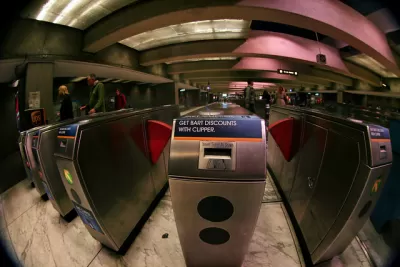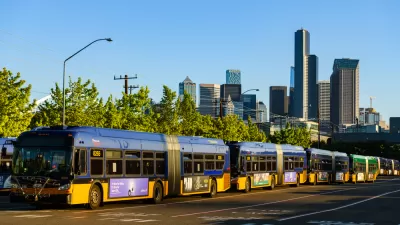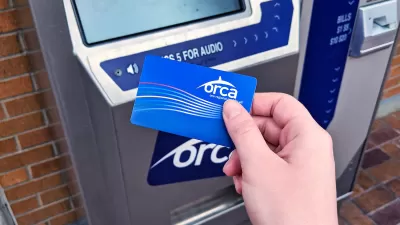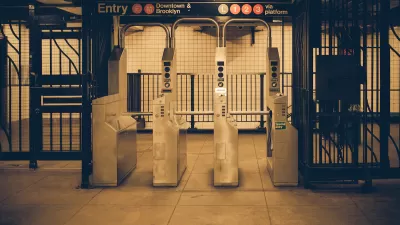Having experienced improper detainment by transit police officers, National City Housing Advisory Committee Commissioner Marcus Bush calls for substantive change in transit fare enforcement systems.

In San Diego, Black Americans account for only 12-14% of Metropolitan Transit System (MTS) ridership, but they receive 32% of the quality-of-life citations. No other group experiences this kind of disproportionate share, notes National City Housing Advisory Committee commissioner Marcus Bush in a recent Voice of San Diego piece detailing an experience of improper detainment by MTS enforcement officers.
"The data from MTS is consistent with what we’ve seen in transit agencies across the country – from large cities such as Los Angeles and New York City – to smaller cities like Portland. It confirms the reality that many of us have personally experienced – the unfair and disparate treatment of Black transit riders," writes Bush.
The MTS Board of Directors approved a program to reduce fare-evasion fines and allow community service rather than monetary payment. Bush considers these to be good first steps, but wants to see more intentional consideration to "address disparate treatment of Black riders and ensure a welcoming, safe, and fair transit system for all transit riders." Bush calls specifically for the reconsideration of transit security and attitudes toward addressing fare evasion as well as the decriminalization of an inability to pay evasion fees.
Moreover, transit officials should undergo more anti-bias training and work with social support services to help riders with mental health issues. Addressing the issues underlying fare evasion will allow for a transit system accessible and safe for everyone, says Bush.
FULL STORY: Transit Officers Target Black Riders – That Needs to Change

Maui's Vacation Rental Debate Turns Ugly
Verbal attacks, misinformation campaigns and fistfights plague a high-stakes debate to convert thousands of vacation rentals into long-term housing.

Planetizen Federal Action Tracker
A weekly monitor of how Trump’s orders and actions are impacting planners and planning in America.

San Francisco Suspends Traffic Calming Amidst Record Deaths
Citing “a challenging fiscal landscape,” the city will cease the program on the heels of 42 traffic deaths, including 24 pedestrians.

Defunct Pittsburgh Power Plant to Become Residential Tower
A decommissioned steam heat plant will be redeveloped into almost 100 affordable housing units.

Trump Prompts Restructuring of Transportation Research Board in “Unprecedented Overreach”
The TRB has eliminated more than half of its committees including those focused on climate, equity, and cities.

Amtrak Rolls Out New Orleans to Alabama “Mardi Gras” Train
The new service will operate morning and evening departures between Mobile and New Orleans.
Urban Design for Planners 1: Software Tools
This six-course series explores essential urban design concepts using open source software and equips planners with the tools they need to participate fully in the urban design process.
Planning for Universal Design
Learn the tools for implementing Universal Design in planning regulations.
Heyer Gruel & Associates PA
JM Goldson LLC
Custer County Colorado
City of Camden Redevelopment Agency
City of Astoria
Transportation Research & Education Center (TREC) at Portland State University
Jefferson Parish Government
Camden Redevelopment Agency
City of Claremont





























